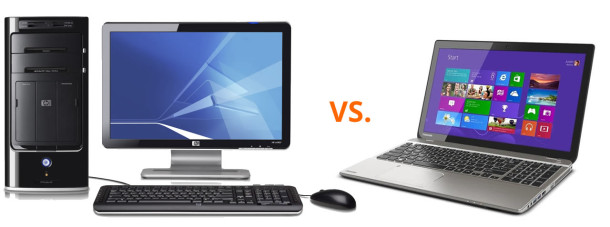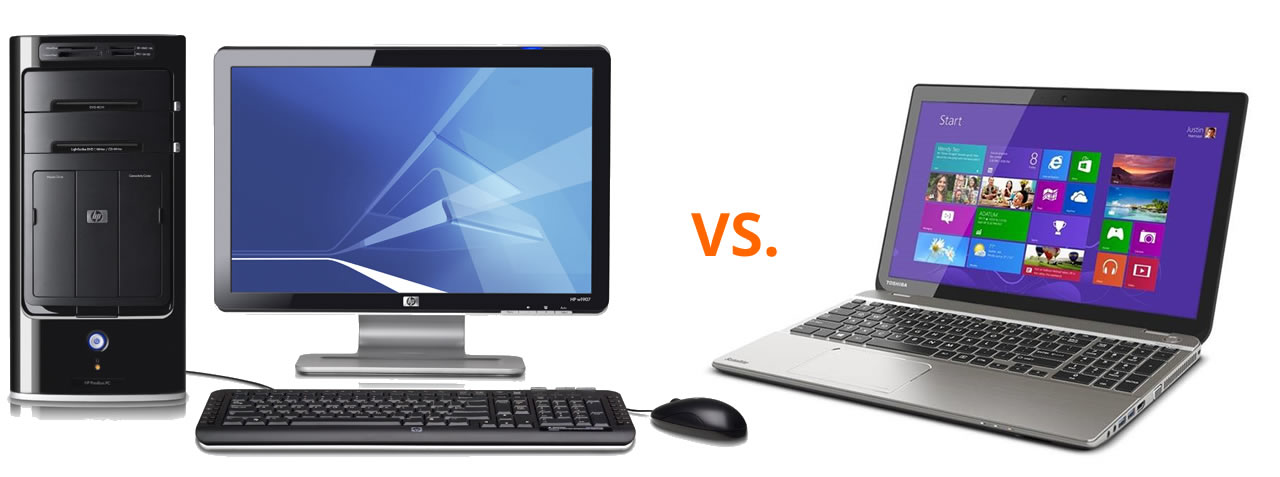
When it comes to technology, there are two predominant types that usually whittle their way to the forefront of everyone’s minds.
We’re talking about mobile technology, and desktop technology.
Each of them have their benefits and their downfalls, and that’s what we’re going to explore in this blog.
Will desktop reign superior? Or will mobile finally be the one that knocks desktops off the edge and into oblivion?
We’re not psychic, but the trends thus far allow for some very interesting patterns to emerge. So let’s take a look at them before making an educated prediction as to whether mobile will ever truly have the strength and dominance it needs to take over in the world of technology.
Desktop and mobile tech – a look back
It perhaps doesn’t need to be said that desktop technology was the first one that took a strong hold dominance back in the 80’s and 90’s era. Computers quickly became a staple item in a lot of households. And they were, of course, desktop.
The big, chunky monitors that were more boxes than screens, and the towers that went alongside captured the intrigue, and money, of the world.
IBM were amongst some of the most common manufacturers – but as we know, desktop didn’t reign its dominance forever.
Mobile technology appeared soon after.
One of the first pieces of mobile technology has to be the calculator, but in terms of items designed to replace the desktop computer – laptops were, and still are, their main rivals.
They too became available in the 1980’s, but of course all anyone need to do is to think back to realise that this type of technology did not become popular until at least the second half of the 90’s and the beginning of the 2000s.
Benefits and pitfalls of desktop technology
There are many pros and cons to take into mind when it comes to considering whether desktop technology can outlive its mobile cousin, and each of them will have an effect on the outcome of this bitter rivalry.
Benefits and downsides of having a desktop computer
Desktop computers have always been able to hold larger chunks of memory.
This is because they don’t need to be transported, and therefore there’s more room to ensure that a desktop computer can function to the best of its ability.
On top of this, desktops can handle larger screens because, once again, they don’t need to be portable. This means better graphics, which can mean that in terms of running games and similar software, desktops are much better at handling graphics. They also have the memory space required to load games effectively without slowing down other processes on the device.
However, in terms of negative aspects of desktop computing, the first point we’re going to cover is perhaps distinctly obvious. You cannot move a desktop and even though you spent a pretty dollar on cheap gaming chairs with outstanding performance, they still roll over your wires, tangling and breaking them.
This means that your work will be stuck in one place (unless you make the most of cloud computing) and if you don’t, then you also won’t be able to use your computer unless you’re at home.
Because it’s stationary, it also needs a permanent place in the home. Wherever you put your computer desk is entirely up to you. But not everyone has the freedom, space or money needed to splash out on an expensive computer chair and desk area.
This could lead to your home looking cluttered, with an expensive computer sat on the end of your dining room table.
So the biggest issue with a desktop is the lack of mobility. However, cloud computing software such as Google Drive means you can take your files with you anywhere, and can access them simply by logging on to your system.
With tech like this, why would mobile tech ever be more important?
Well, let’s explore that a little further.
Benefits and downsides of mobile technology
Obviously, one of the most dominant benefits of mobile tech is that it’s mobile. Whether you have a laptop, a tablet or something else portable – one of the main advantages is that you can take it wherever you go with ease.
Because they are so easy to move, you can also hold them or rest them in your lap to operate them. This removes the need for a permanent desk, and also allows them to be slotted away easily once they have served their use.
But being so easy to move around does not come without its downfalls. One of the main concerning factors that need to be explored when it comes to laptops is the fact that they are more easily damaged.
Whether you drop your bag down from a high, or perhaps someone spills something on yours – the reality is, there’s just as much chance of your tech becoming damaged out and about than there would be if it remained safely on your desk at home.
As well as this, battery life is also limited. This means if you can’t get your device to a charging point before it runs out of power, the time you can spend on your device is going to be limited.
Also, because the device is smaller, it’s not unusual for the amount of space available to be limited. This means that unless you spend money on a memory card/stick, or have a portable hard drive to carry around with you.
So with both of these devices in mind, and their pros and cons, will the mobile device ever be able to snatch the crown from desktop and put an end to its ruling?
Mobile vs Desktop
Some may say that mobile devices have already won. As we can see from this graph here, the amount of time spent on mobile devices first took over desktop usage in January 2014, and we can’t honestly see this being something that will slow.
As well as this, the amount of mobile devices shipped in 2015 far outweighed the amount of desktops as can be seen in this graph on TechCrunch.com.
So with mobile being used more regularly, and shipping more often, can it be argued that they’re well on the way to replacing desktop computers?
Perhaps.
But they’re not there yet. And until mobile devices prove themselves to be 100% as powerful in terms of memory and battery as a traditional desktop – we believe there will always be a place for desktop technology in the modern world.
But if that day does ever arise, and mobile goes bigger than desktop – then we can’t say we’ll be totally surprised, either.
This blog post was written by Jennifer Smith on behalf of ITR

